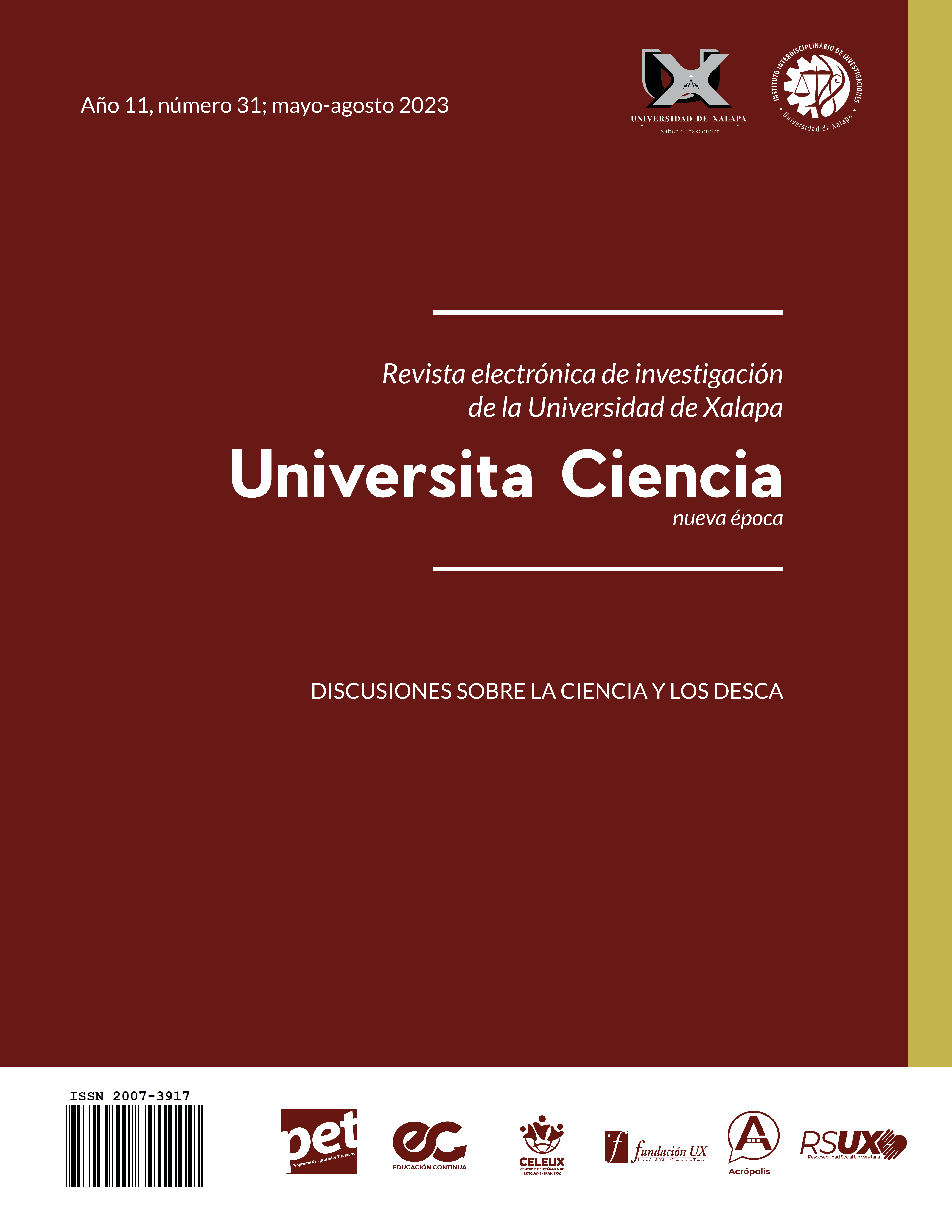Making Visible the Contributions of Women to ESCER in Information Technologies, and Their Challenges in Science
DOI:
https://doi.org/10.5281/zenodo.8125096Keywords:
ESCR, discrimination, indigenous women, human rights violations, scientific workAbstract
At present, indigenous women are often
victims of various forms of discrimination
and violations of their human rights in
aspects of daily life, this includes the
detriment of Economic, Social, Cultural
and Environmental Rights (ESCER). To
prevent women, specifically those who
belong to indigenous communities,
from suffering violations of their human
rights, education turns out to be the
main instrument of the States to deal
with this problem, the scientific work of
indigenous women must be made visible,
since by knowing the context in which
the communities develop, their research consolidates sustainable contributions
that enrich their culture and the
environment.
Metrics
References
Ballesteros, B. A. (2019). La ciencia indígena. Colombia: Universidad Distrital Francisco José de Caldas.
Balvedi, G. & Cabrera, M. (2020). Realidades de las mujeres indígenas: Una mirada desde el Navegador Indígena. España: Navegador Indígena.
CLADEM. (2017). La participación de las mujeres indígenas en la conservación del patrimonio cultural. Paraguay: CLADEM.
CNDH. (2015). ¿sabías que éstos también son tus derechos? Derechos económicos, sociales, culturales y ambientales. México: CNDH.
Comisión Interamericana de Derechos Humanos. (2017). Mujeres indígenas. Costa Rica: OEA.
García, S. (2021) Compendio sobre Derechos Económicos, Sociales, Culturales y Ambientales DESCA. España: Comisión Interamericana de Derechos humanos.
Gómez, C. (2007). Redes y saberes: el papel de la mujer indígena ante la creación de sitios web. Redes, 13 (26), 215-233.
Gómez, K. & Espinoza, R. (2022). El derecho humano a la ciencia: contenido, principios y garantías. Revista del posgrado en derecho de la UNAM, 17 (10), 21-82.
Navarrete, G. D; Navarrete, García, M.A y Fagoaga, H. R. (2023). Mujeres científicas indígenas en México: Figuras y aportes. México: Centro de Investigaciones y Estudios Superiores en Antropología Social.
Observatorio de Igualdad de Género de América Latina. (2021). Mujeres indígenas en América Latina: dinámicas demográficas y sociales en el marco de los derechos humanos. Santiago de Chile: CEPAL.
Solano, Ana. (2020). Realidades de las mujeres indígenas. Argentina: Organización Internacional del Trabajo.
Szenkman, P; Lotitto, E; y Alberro, S. (2021). Mujeres en la ciencia y tecnología: cómo derribar las paredes de cristal en América Latina. Buenos Aires: CIPPEC.
Tello, L. (2011). Panorama general de los DESCA en el Derecho Internacional de los Derechos Humanos. Costa Rica: Corte Interamericana de Derechos Humanos.
Published
How to Cite
Issue
Section
License

This work is licensed under a Creative Commons Attribution-NonCommercial-ShareAlike 4.0 International License.
This journal adheres to the Creative Commons license in the definition of its policy of open access and reuse of published material, in the following terms:
- Accessibility to articles and other publications in whole or in part under the concept of copying, distribution, public communication , interactive access (through the Internet or other means), explicitly maintaining the recognition of the author or authors and the journal itself (authorship acknowledgment).
- Warning that if the articles are remixed, modified or fragments used in other creations, the modified material cannot be distributed, nor is it allowed to reconstruct versions from the original published articles (derived works).
- The use of the contents of the published articles, in whole or in part, for profit (non-commercial recognition) is prohibited.
The author retains copyright, transfers or grants exclusive commercial rights to the publisher, and a non-commercial license is used.














